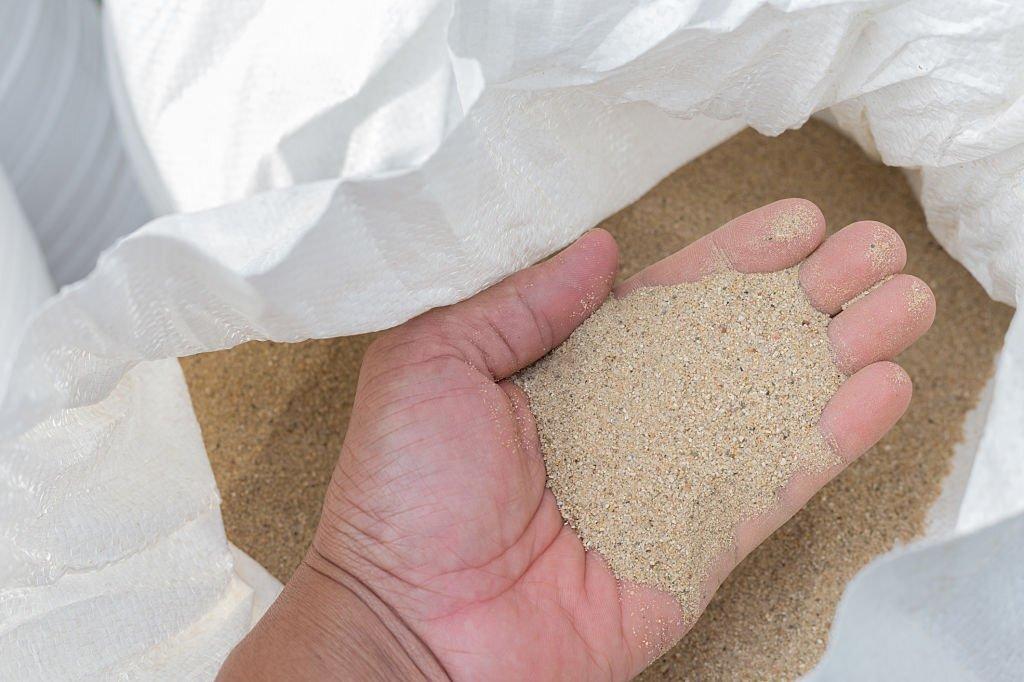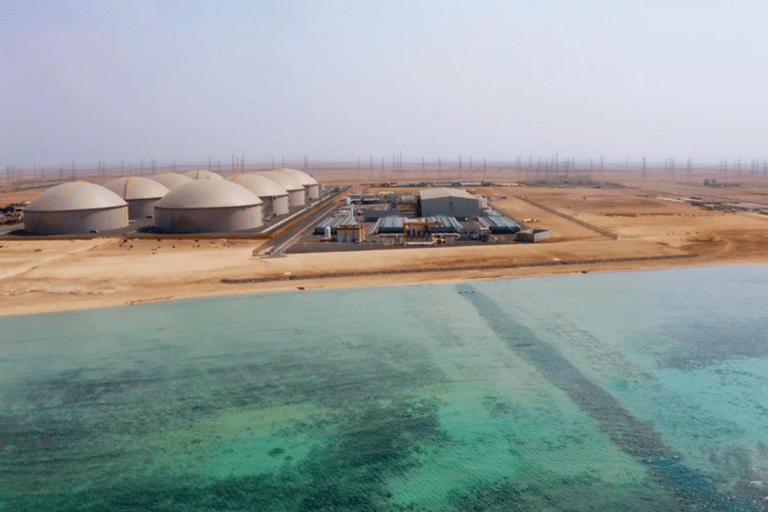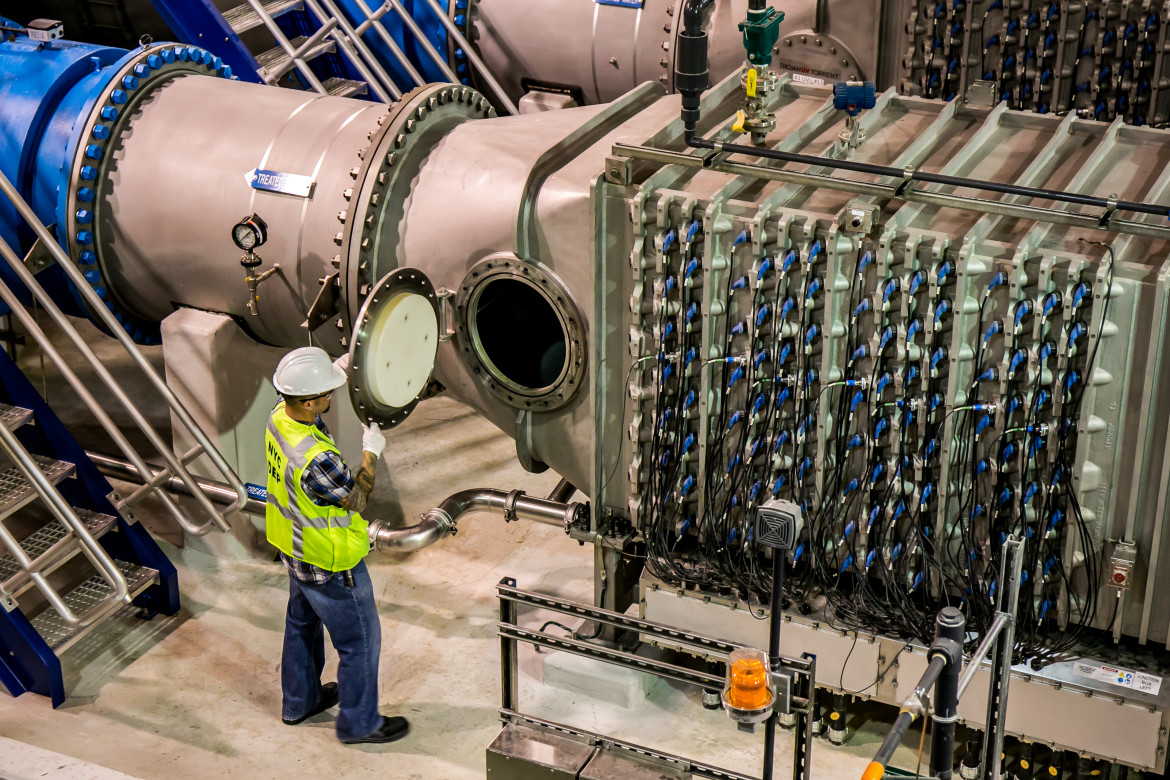In the pursuit of securing a sustainable source of freshwater, the fields of water treatment and desalination play pivotal roles. In this article, we delve into two advanced methods: the Multistage Flashing (MSF) process and the Reverse Osmosis (RO) process. Elevating Water Treatment and Desalination: The Role of Zeolite Filter Media

Additionally, we examine the transformative impact of zeolite filter media on ensuring the highest standards of water purity.
The Multistage Flashing (MSF) Process
Understanding MSF
The Multistage Flashing (MSF) process represents a sophisticated approach to seawater desalination. It capitalizes on the application of heat to convert seawater into steam, which is subsequently condensed to yield desalinated water.

This method unfolds through multiple stages, each meticulously designed to progressively reduce water pressure and facilitate vapor generation.
The Significance of Filter Media
Within this intricate process, filter media assumes a critical role in safeguarding water purity. Collaborating seamlessly with heat exchanger tubing, specialized filter media constitutes the core of the MSF process.

Their collective function ensures that only the purest freshwater emerges from the saline depths.
The Reverse Osmosis (RO) Process
a. An In-Depth Examination of RO
In the realm of water treatment and desalination, the Reverse Osmosis (RO) process stands as a cornerstone. It subjects seawater to rigorous pressure, compelling it to traverse a semi-permeable membrane for the selective removal of sodium and chloride ions. Yet, the journey begins with a crucial pretreatment phase. The Role of Zeolite Filter Media
b.Zeolite Filter Media: A Paradigm Shift
Traditionally, filter media have operated discreetly in the pretreatment phase of RO. However, the emergence of zeolite filter media has ushered in a paradigm shift. This innovative material boasts exceptional adsorption and ion-exchange properties, promising elevated standards of water quality.
c.Zeolite Filter Media: A Natural Solution
Zeolite’s porous structure emulates nature’s own filtration mechanisms, akin to groundwater purification through geological formations.

It demonstrates a remarkable capacity to capture impurities with precision. In essence, zeolite filter media presents a natural solution to water purification, yielding water as pure and rejuvenating as pristine springs.
In the ongoing endeavor to secure a sustainable freshwater supply, innovation remains paramount. Whether one delves into the intricacies of the MSF process or explores the precision of the RO method, the choice of filter media emerges as a critical determinant of water quality.
Zeolite filter media distinguishes itself as a game-changer, aligning with nature’s principles to deliver unparalleled purity.
Choosing the right pretreatment for the future of Water Desalination in Saudi Arabia
Water pretreatment in the desalination process is crucial to remove larger particles, suspended solids, and other impurities before subjecting the water to the main desalination method. While sand filters have been traditionally used in pretreatment, zeolite filter media can offer several advantages in terms of effectiveness and efficiency. The Evolution and Future of Water Desalination in Saudi Arabia
Here’s how zeolite filter media can enhance the water pretreatment process compared to sand:
- Filtration Efficiency: Zeolite has a higher filtration efficiency compared to sand due to its smaller particle size and uniformity. This allows for better removal of suspended solids and smaller particles, resulting in cleaner water.
- Ion Exchange Capacity: Zeolite’s ion exchange properties make it highly effective in removing heavy metals, ammonia, and other contaminants present in the water. It can selectively capture these ions and exchange them with less harmful ones, thereby improving water quality.
- Longer Filter Run Times: Zeolite filter media tends to have longer filter run times compared to sand filters. This means that the zeolite filters require less frequent backwashing or regeneration, reducing water and energy consumption during the pretreatment process.
- Reduced Pressure Drop: Zeolite’s smaller particle size and uniformity contribute to a lower pressure drop across the filter media. This helps maintain a consistent flow rate, reducing the energy requirements of the pretreatment system.
- Compact Design: Zeolite filters can achieve the same or higher levels of pretreatment efficiency as sand filters while requiring a smaller footprint. This compact design is especially beneficial in situations where space is limited.

It’s worth noting that the specific design and configuration of the pretreatment system, including the type and size of zeolite media, will depend on the water source, quality, and the desalination process employed. The Role of Zeolite Filter Media The Evolution and Future of Water Desalination in Saudi Arabia
Future Prospects and Considerations in Water Desalination Process in Saudi Arabia
Projections indicate that Saudi Arabia may require a desalinated water capacity of up to 4.5 billion cubic meters per year by 2040, double the current production levels. Achieving this ambitious target will demand continued innovation, research, and investment in desalination technologies.
In addition to technical advancements, demand management strategies will play a crucial role in balancing water consumption. Awareness campaigns and potential taxation on high water usage are among the methods that may be employed to reduce water demand.





